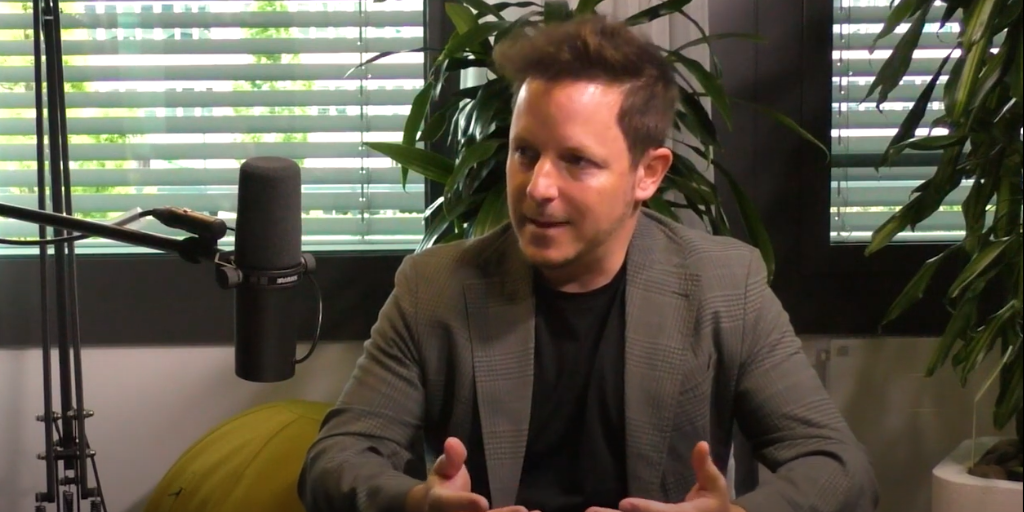Smart Investing: The Role of AI in Modern Portfolio Management
Explore the future of investing as fintech expert Marc Lussy engages in an insightful conversation with Stefan Klauser, CEO & Co-Founder of aisot. Together, they delve into the transformative impact of Artificial Intelligence on portfolio management, equipping investors with data-driven strategies for success.

(Interview based on the video "Smart Investing: The Role of AI in Modern Portfolio Management" available here)
Marc Lussy: Could you please tell us about aisot and its mission?
Stefan Klauser: Certainly. At aisot, we offer a comprehensive platform catering to asset managers, funds, and investment advisors. Our platform empowers them with AI-driven insights for their portfolios, facilitates the creation of innovative strategies, automates portfolio optimization, and enables the seamless integration of these strategies into financial products.
Marc Lussy: We've been hearing a lot about AI and machine learning in asset management, but can you shed light on how you specifically support asset and wealth managers?
Stefan Klauser: Absolutely. We commence by sourcing and aggregating data, taking into account specific client restrictions like target volatility, desired asset allocations, inclusion or exclusion of certain securities, and risk-free components. We then contextualize this data, creating personalized portfolios tailored to our clients' objectives. A noteworthy feature of our solution is the ability for clients to securely incorporate their own datasets and insights, should they have internal quant or research teams.
Marc Lussy: Is your approach genuinely AI-driven, or is it primarily data analytics?
Stefan Klauser: Our approach combines various types of machine learning including reinforcement learning, deep learning, and the integration of large language models to enhance the portfolio creation and optimization process. While AI plays a pivotal role, we also incorporate traditional approaches such as quant optimizations, e.g. using the Black-Litterman methodology, alongside AI techniques.
Marc Lussy: What sets you apart, and can you generate alpha better than human investment managers?
Stefan Klauser: It's a twofold distinction. Beyond pure performance, we empower asset managers to deliver truly bespoke portfolio solutions to their clients. Traditional methods like ETFs or market replication may yield decent performance but limit control over portfolio construction. Today's investors, particularly the emerging generation, seek active management with input on asset selection and portfolio sustainability. We bridge this gap by providing technology-driven solutions that offer real-time customization, a feat unattainable with spreadsheets or conventional tools.
Marc Lussy: Oswald Gruebel once suggested that computer-based strategies merely replicate market performance and questioned the need for AI if it doesn't outperform. What's your take on this?
Stefan Klauser: Gruebel's perspective simplifies the matter, but he isn't entirely mistaken. Outperforming well-established benchmarks like the S&P 500 is indeed challenging, even with cutting-edge technology. However, we've outperformed the S&P 500 with a subset of S&P 500 titles over an extended period, demonstrating our capability. Even if the outperformance is not very significant there, it becomes clear that it is possible to reach index-like performance with a customized subset of a given index, opening up a whole new world of mass customization. Furthermore, we excel in alternative asset classes like cryptocurrencies, where AI and quantitative tools can significantly boost performance. It's crucial to acknowledge that the regulatory constraints faced by larger banks impact their ability to leverage modern AI tools effectively.
Marc Lussy: How has ChatGPT impacted your business?
Stefan Klauser: The emergence of ChatGPT and the broader AI landscape is a positive development. It reinforces the relevance of AI across various industries, including finance. Financial institutions, which often lag in adopting AI, are increasingly recognizing its potential. ChatGPT's presence has amplified interest in our products among prospective and existing customers.
Marc Lussy: Traditional banks still rely heavily on analysts and follow conventional approaches. What do you foresee for the next five years in this context?
Stefan Klauser: Smaller players in the financial sector have embraced the need for modernization and are willing to experiment with new tools. Large banks, on the other hand, tend to be cautious and may fear job displacement due to AI. As time progresses, the pace of technological development will drive wider adoption. While AI may not replace all functions, it will reshape how AI is efficiently applied across various business streams, including portfolio management and generation.
Marc Lussy: Established players like Goldman Sachs possess substantial resources. How can startups like aisot compete in this landscape?
Stefan Klauser: Currently, we aren't in direct competition with behemoths like Goldman Sachs or BlackRock, as we operate as an independent third-party platform. However, in the realm of AI-driven financial services, success hinges on the quality of the team. Here, we have an advantage, as professionals from larger institutions, such as Goldman Sachs, are increasingly attracted to join agile startups like aisot. We are nimble, leveraging cloud-based services, unburdened by legacy software, which enables us to move swiftly compared to larger incumbents. Ultimately, the choice between in-house development and collaboration with third-party providers like aisot depends on the priorities of these institutions.

.png?width=352&name=Jul%202021%20(43).png)
